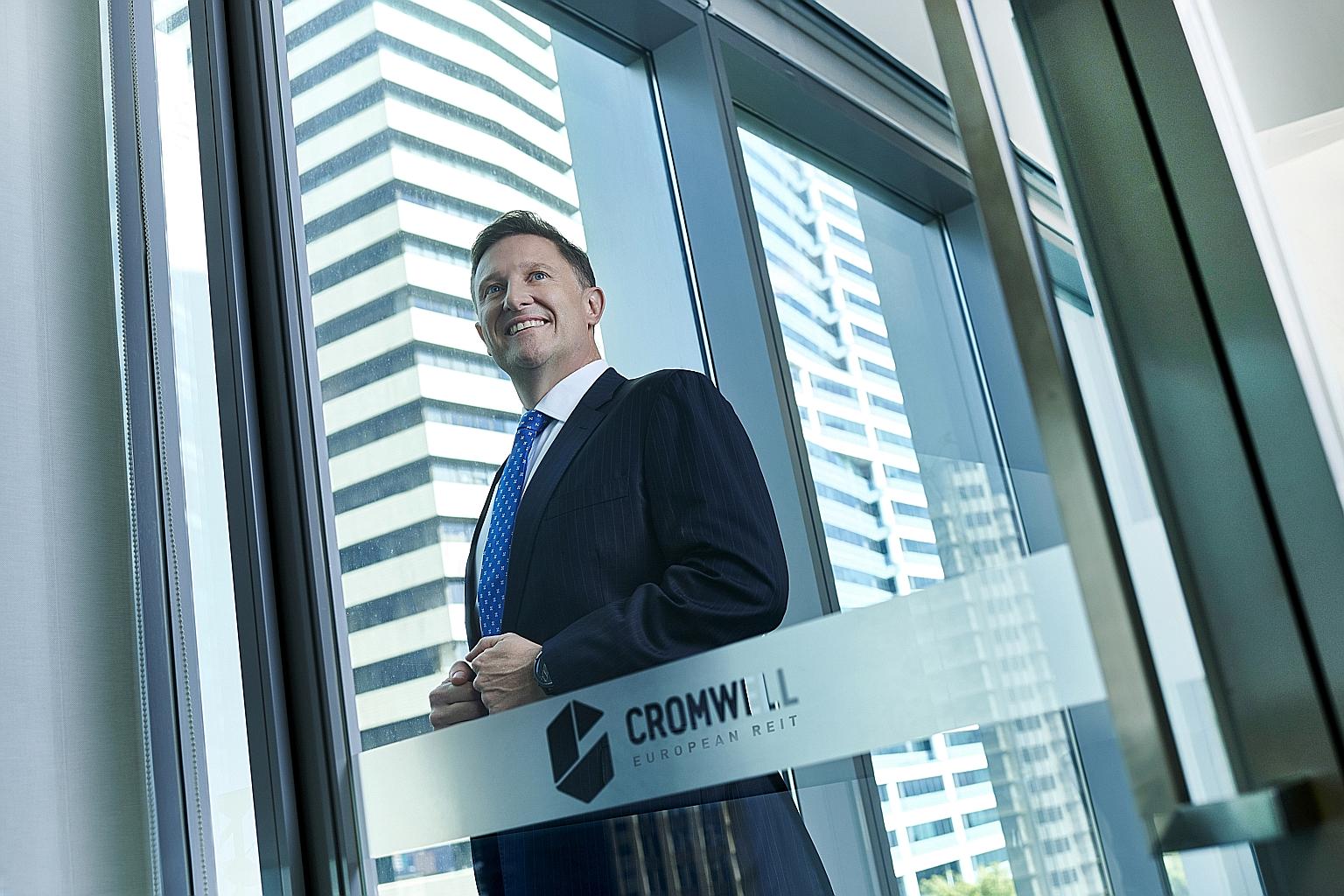Cromwell European Reit rides urbanisation wave
Sign up now: Get ST's newsletters delivered to your inbox

Mr Simon Garing was appointed chief executive of the manager of Cromwell E-Reit in September 2018.
Real estate runs in Mr Simon Garing's blood.
The chief executive of the manager of Singapore Exchange-listed (SGX) Cromwell European Real Estate Investment Trust (Cromwell E-Reit) has spent nearly three decades of his career in the global property industry, with roles spanning capital management, investment management, financial advisory and equity market analysis.
"My granddad was a construction engineer, my mum was an architect, and my brother works for a Reit in Australia," said the 51-year-old, who holds a bachelor of commerce degree in accounting and finance from the University of New South Wales, Australia.
Referring to tapping the potential of each parcel of land, he said: "By exercising your creativity, you can turn it into something different. You can improve on and add value to the asset - for example, transforming it into an office campus - and impact many people's lives," he added.
In September 2018, Australian-born Garing was appointed CEO of the manager of Cromwell E-Reit. Previously, he was chief capital officer of Cromwell Property Group, where he was responsible for capital management and fund raising.
Listed on SGX in November 2017, Cromwell E-Reit is Singapore's first real estate investment trust (Reit) with a diversified pan-European portfolio. The Reit owns 103 primarily freehold properties in or close to seven gateway countries - Denmark, Finland, France, Germany, Italy, the Netherlands and Poland.
Its portfolio - with an appraised value of more than €2 billion (S$3.1 billion) as of Sept 30 last year - has a net lettable area of about 1.5 million sq m, close to 1,000 tenant-customers, and a weighted average lease expiry of 4.6 years.
Over the past year, Cromwell E-Reit has generated total returns of 32 per cent in euros and 27 per cent in Singapore dollars.
In comparison, total returns stand at 25.5 per cent and 9.4 per cent for the FTSE ST Reit Index and benchmark Straits Times Index respectively.
UNCOVERING VALUE The Reit manager achieved a 43 per cent year-on-year improvement in its Global Real Estate Sustainability Benchmark (GRESB) score, which rose to 67 last year from 47 in 2018.
The GRESB is the benchmark for the environment, social and governance performance of real-estate assets worldwide.
"In Europe, if you don't have a GRESB rating as Reit, there're almost a trillion euros of funds that won't invest in you," said Mr Garing.
The question he faced initially was how to build trust as a new kid on the Reit block, without any links to the Singapore establishment.
"We made sure we delivered or outperformed forecasts in our IPO (initial public offering) prospectus, and made transparency our watchword."
The Reit's distribution per unit rose 30.4 per cent to €1.03 cents for the fourth quarter ended Dec 31 last year, from €0.79 cent a year ago. Net property income grew 60.4 per cent on the year to €33.6 million for the quarter, from €20.9 million a year ago.
The Reit remains focused on acquiring office and logistics assets that will capitalise on the latest urban trends sweeping Europe.
However, it is less likely to pursue what may be perceived as "trophy assets" in these segments.
Instead, Cromwell E-Reit ferrets out assets that slip below everyone else's radar - properties whose values can be lifted via asset enhancement initiatives.
• This is an excerpt from Singapore Exchange's Kopi-C: The Company Brew, a column featuring C-level executives of SGX-listed firms. Previous editions are on SGX's website www.sgx.com/research


